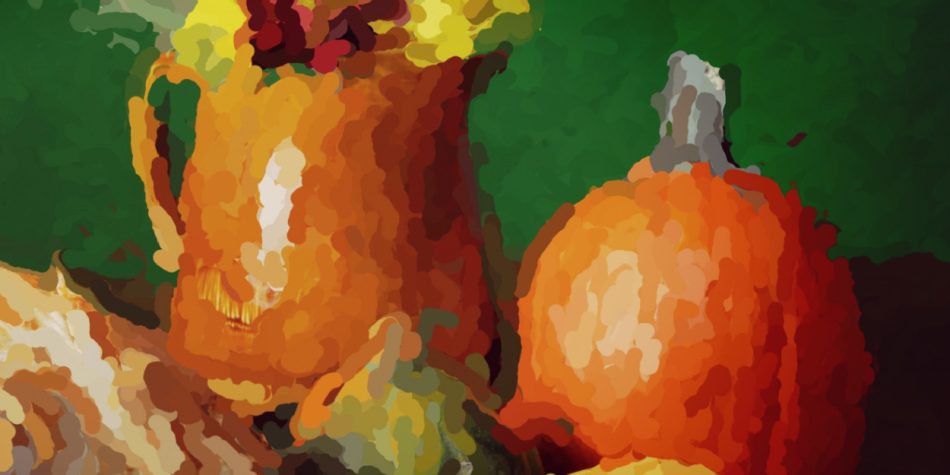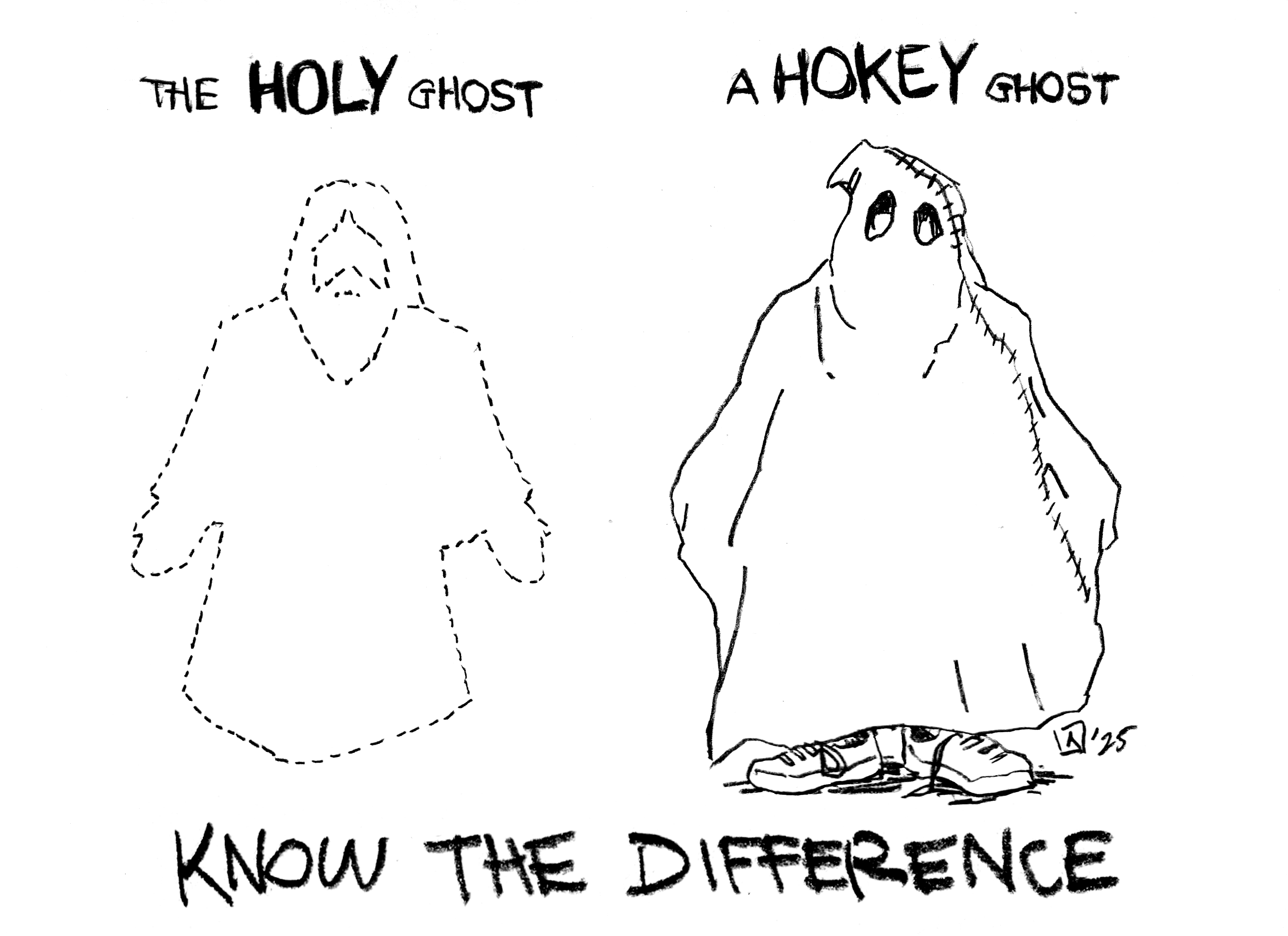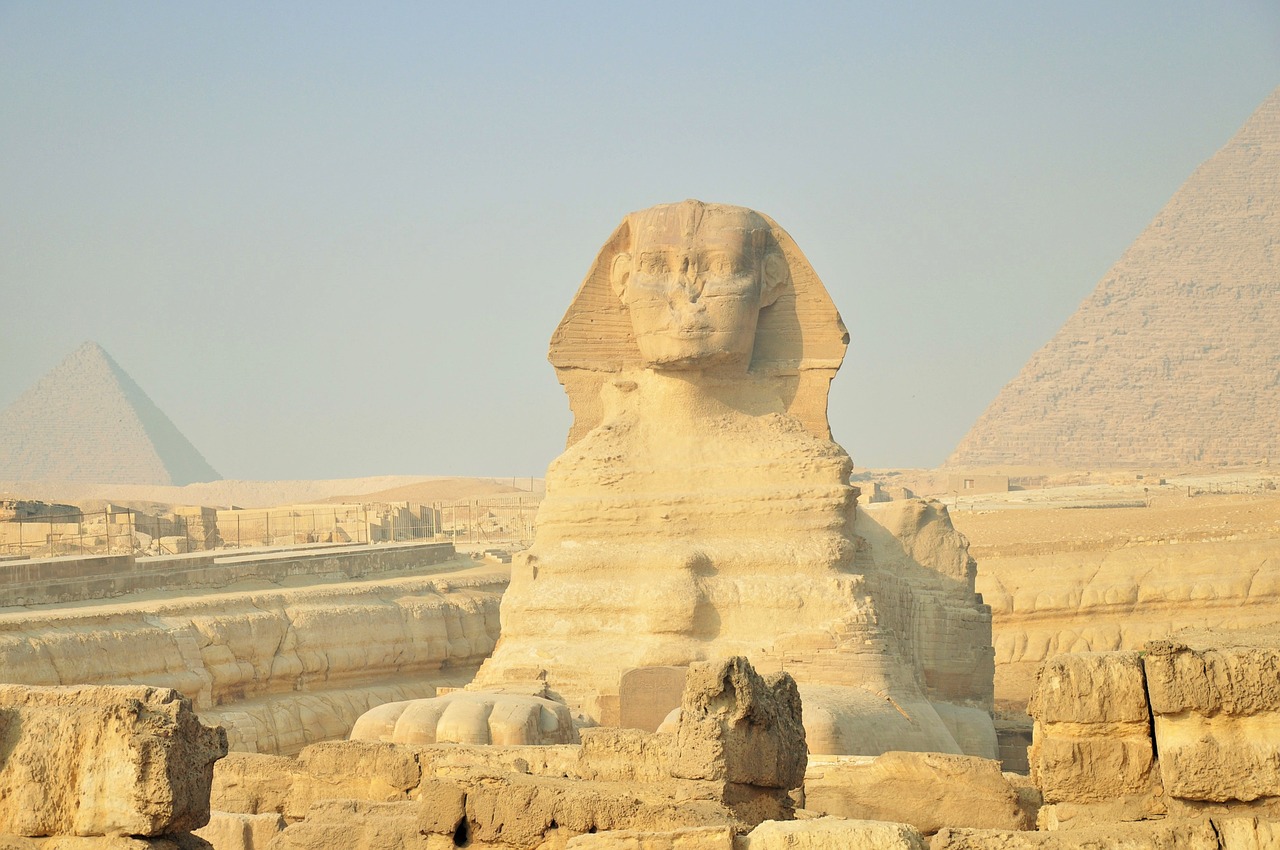Happy Thanksgiving!
For so many in our faith tradition, the holiday has a more literal meaning this year—as today marks the end of a week of giving daily thanks.
The movement has provided a welcome break from the cynicism of the election season and has helped change our perspective from fixating on the negativity of the past year.
But for many, the choice to focus on gratitude at this challenging time seems tone-deaf to the realities of what is happening all around us. In response, I would say simply, gratitude is so much greater than these critics give credit for.
Being grateful is an essential part of a whole soul.
When only one of the ten lepers He healed turned back and Christ asked, “Where are the nine?” He wasn’t hurt that his good deed wasn’t acknowledged; instead, the Lord saw what the nine were missing by not expressing gratitude. It was only after the leper gave thanks that Christ could say the grateful leper was whole.
While it was the President of The Church of Jesus Christ of Latter-day Saints who prompted the trending #givethanks hashtag, Latter-day Saints are far from the only ones who value gratitude.
Buddha made the observation, “Let us rise up and be thankful, for if we didn’t learn a lot today, at least we learned a little, and if we didn’t learn a little, at least we didn’t get sick, and if we got sick, at least we didn’t die; so, let us all be thankful.” Unlike vanity, which insists we cause our own joy, gratitude sees in others the cause of our joy.
In Ancient Greece there was an epic philosophical throw down between the Epicureans and the Stoics, who argued for hundreds of years about the meaning of life. They couldn’t seem to agree on anything, but they both praised gratitude.
Even researchers have confirmed great value in the use of a gratitude journal.
It would seem that Aesop, the great storyteller, understood what so much of humanity has intuited in saying, “Gratitude is the sign of noble souls.”
What is Gratitude?
Since I also want a noble soul, I want to see the many different aspects of gratitude to understand how to develop my own attitude of gratitude.
Unlike vanity, which insists we cause our own joy, gratitude sees in others the cause of our joy. Gratitude enjoys receiving, but does not keep the joy to itself—it shares, not to boast, but to create a joy ripple that can prolong and share the original pleasure.
Gratitude is not indebtedness because it is given freely. Gratitude is anchored on what has occurred. It is not hope, but knowledge. Gratitude rejoices in what was and what is, leaving no room for regret. In short, it’s been said, “gratitude is the most [pleasurable] of virtues and the most virtuous of pleasures.”
But to best understand how being grateful helps us in our own lives, we need to think about the entire experience of gratitude. This starts with learning for ourselves how to show gratitude to those around us.
Gratitude to Others
Why is it important to be grateful? The gratitude we give to one another is important because it encourages other positive behaviors. It accomplishes this first as a teacher, second as a motivator, and third as a reinforcer.
We can see how this works from the viewpoint of a young child who has been given a toy by an older sibling. Naturally, the child feels gratitude for the toy. Because she or he feels that pleasure, the child learns sharing is good. Teacher.
That child then learns that when you give someone a toy, he or she feels good, so the child wants to share to give others the same feeling. Motivator.
And, if the child expresses that gratitude, the older sibling wants to share again in the future. Reinforcer.
What is miraculous about gratitude is that the kinds of experiences that prompt us to feel it (sharing, kindness, charity, generosity) are things we want more of. And gratitude makes us want to engage those things even more.
If you have been heartened by the initial outpouring of gratitude that #givethanks has produced, I would encourage you to observe how the effort reinforces both those who have expressed thanks and others who have been thanked to continue pursuing the positive behavior that initiated the gratitude.
In many ways, contemporary critics of gratitude are echoing similar cynics of the past. François de La Rochefoucauld, a 17th-century French writer, had so many negative experiences with false and manipulative gratitude that he concluded, “Gratitude is merely the secret hope of further favors.”
If we abuse gratitude by showing it only to those we hope will “give us more,” then what we are demonstrating is not, in fact, gratitude.
One of the challenges in showing gratitude to others is identifying to whom we should be grateful.
When I think of benefactors, I think of the Charles Dickens’ classic Great Expectations. The main character, Pip, spends the novel finding out who left him a huge amount of money so that he could become an English gentleman.
Pip eventually learns that it was Magwitch, a criminal he met as a child. But perhaps the novel’s most important observation is that Pip had still not discovered his true benefactor.
Pip was orphaned as a child, and his brother-in-law Joe took him in. When Pip’s hopes to marry into a wealthy family did not work out, Joe made him an apprentice in his blacksmith business. But Pip resented Joe, and at his first opportunity ran to London.
Years later, Magwitch was caught, and the money he gave to Pip was confiscated, leaving Pip in tremendous debt. Soon Pip became ill. Joe traveled to London to care for him. When Pip healed and Joe left, the truth of Pip’s true benefactor hit him.
He lamented, “My . . . thought was one of great thankfulness . . . How often, while he was with me in my illness, had it risen to my lips.” Pip learned, too late, for whom he should truly be grateful. Who do we have in our lives who quietly gives everything for us, but who we look over while waiting for a grander gift?
Clearly, just because someone gives us a gift or favor does not necessarily mean that we should be grateful to them. If I’m in a position of power, a gift could be a bribe. If a mailer tells me I will win a free cruise, it’s probably a sales pitch.
And just as we must not fake gratitude to manipulate others, we are not obliged to be grateful to those who use generosity to manipulate us.
But doctrinally this presents a tricky dilemma. In sacred Latter-day Saint text known as the Doctrine and Covenants, the Lord says that “He who receiveth all things with thankfulness shall be made glorious.” Does “all things” include unpleasant experiences like manipulation or encountering the humblebrag? Surely, it does.
And like Pip, we must learn where to direct our gratitude, and in many cases that is God. President Nelson, after listing the many things for which we can be grateful, emphasized, “Most of all, we can give thanks unto God, the Father of our Spirits.”
Once again, because gratitude is a gift, it requires on some level a giver and a receiver. On a busy weekend day in December finding a parking spot at the mall may tempt us to be grateful to the parking spot. But inanimate objects aren’t the most gracious recipients of our expressions of thanks.
Yet how could I not feel gratitude for that spot – not to mention the first flowers of spring, the comfort of my pillow at the end of a long day, the warmth of the sun, and the succulent crunch of a pickle (that one may just be me)?
Because God is the cause of all these joys He can and should be the receiver of our gratitude. Unlike gratitude for others, which is most often a specific feeling following a specific gift or favor, we ought to have gratitude in our hearts for God at all times. President Monson has said, “To live with gratitude ever in our hearts is to touch heaven.”
“O how you ought to thank your heavenly King!” said King Benjamin, “… you should render all the thanks and praise which your whole soul has power to possess, to that God who … has caused that ye should rejoice.”
Among other things, the injunction to be grateful for all things vindicates the much maligned “stop and smell the roses” appreciation for the present moment. To reap all the blessings gratitude offers we must see the joy around us.
Steven Snow, a member of the Seventy, shared this story: “One summer day, a car with New York license plates pulled in the station where my brother Paul worked and asked for a fill-up.
‘I’ve waited all my life to see the Grand Canyon,’ the man exclaimed. ‘What’s it like out there?’
‘I’ve never been,’ Paul answered.
‘You live two and a half hours from one of the Seven Wonders of the World and you’ve never been!’ After a moment, the man replied, ‘Well, I guess I can understand that. My wife and I have lived in Manhattan for over 20 years, and we’ve never visited the Statue of Liberty.’
‘Oh, I’ve been there.’ Paul said.”
Elder Snow concluded, “It is human nature . . . to seek elsewhere for our happiness.”
To reap all the blessings gratitude offers we must see the joy around us. Gratitude is not wistful for a past that was or a future that may never be, it sees the joy in the “is” and the “now.”
Surely Christ’s instruction to be like little children includes their curiosity, wonder, and gratitude for the many small things all around us.
Blessings of Gratitude
In his worldwide remarks, President Russell M. Nelson suggested that the effects of gratitude “have been validated by scientists as well as men and women of faith.”
It’s true there is substantial research that has been done on how gratitude affects us.
In one study, participants were randomly assigned to write a list each day of things they were grateful for, burdens they had, or a neutral list. At the end of ten weeks, those who had been writing the gratitude journal were twenty-five percent happier than those in the neutral group.
In follow up studies, that happiness difference lasted five months even after the participants stopped keeping the lists.
In happiness research, the long-time consensus had been that nothing could affect your long-term happiness. This might seem counter-intuitive. In their landmark 2008 book Thanks researchers recounted “Within three weeks of an injury that left them paralyzed, persons with spinal cord injuries reported happiness more frequently than anxiety, depression, or anger.”
Harvard psychologist Dan Gilbert summarized this, “if it happened over three months ago, with only a few exceptions, it has no impact whatsoever on your happiness.”
And yet, gratitude affects happiness.
A young mother tried this practice of listing everything she was grateful for—and then taking opportunities to express this to those around her. She shared what happened next: “Our nine-year-old son,” she said, “responded gladly to my appreciation for him. Twelve-year-old Linda called me ‘kooky,’ yet she melted into happy smiles whenever approached by the new me.”
She continued: “It was our 14-year-old son [Jeff] who really convinced me that I had a magic formula. Communication with Jeff had been most aggravating; the wall between us was thick and hard and had caused me great concern. Yet during the following week, in a brief note, Jeff wrote, ‘Mom, it has been nice to be able to talk to you lately.’ The fruits of gratitude were in our home.”
Interesting to note that genuineness is not a prerequisite to reaping the benefits of gratitude. Being assigned by a researcher with the mere hope that expressing gratitude would eventually lead to grateful feelings was enough. We could likewise assume that those who have taken up #givethanks because they were challenged to do so, will likewise reap the benefits of it.
Frequent Public Square contributor Dan Ellsworth recently wrote, “Gratitude is a transformative spiritual discipline. And like any discipline, sometimes it needs to be practiced before the feelings are there, with trust that the feelings will follow. … Every great spiritual teacher will encourage us to do things we don’t feel like doing, to take steps toward growth out in front of our feelings.”
Those inclined to criticize expressions of gratitude as insincere are missing possibilities that are beautiful. For instance, it is those who do not feel grateful who demonstrate the most courage (and will reap the greater reward) when they choose to express gratitude anyway.
Vaughn E. Worthen, associate director at the counseling center at BYU, explains further, “As a licensed psychologist, I have extensively researched the use of gratitude [journals] in promoting well-being. I find [they are] helpful in treating depression, reducing anxiety, and introducing a more positive focus to troubled relationships.”
The blessings of gratitude are obvious for the receiver and are clinically without dispute for the giver. If your goal is to increase genuine long-term happiness for as many people as possible, there would be few more effective approaches you could take than encouraging the widespread adoption of recounting gratitude daily.
Gratitude During Trials
Nathaniel Givens, another frequent Public Square contributor recently wrote, “There are real reasons for grief and fear and stress all around us. Denial can’t make all problems and symptoms go away. But gratitude isn’t about flipping a switch to be happy. It’s not about making problems evaporate. Gratitude doesn’t deny anything. It is simply a choice to look for blessings—for things to be thankful for—regardless. That’s a choice we can always make, no matter the circumstances. Yes, it’s a lot harder in dark times. But it’s also a lot more important in dark times.”
Some mistakenly describe gratitude as a form of avoidance or “toxic positivity.” While nothing about the virtue of gratitude encourages or even suggests these behaviors, the temptation to wonder about this is perhaps understandable in light of quotes like this from Bonnie Parkin, former Relief Society General President, who taught that being grateful for all things “means just that: good things, difficult things—not just some things.”
What she said is absolutely true, but in a world filled with evil, how can we be grateful for all things without falling into the trap of avoidance? But gratitude is not the same as thankfulness.
Within Taoism, the popularized yin and yang symbol represents two complementary forces. And in many expressions of this, you can imagine why one might be thankful for one force but not the other—pain and pleasure, happiness and sadness, for example.
Within Taoist meditation, however, the concept of gratitude and acceptance are often brought together. Within this tradition, these complementary forces make up the whole, and by being grateful for the one we are, by default, expressing gratitude for the other that makes it possible.
This idea has clear parallels in the restored gospel of Jesus Christ. Lehi explained to his sons, “it must needs be, that there is an opposition in all things. If not so…neither good nor bad [could be brought to pass.]” Lehi understood this idea intimately for after he, “suffered many afflictions and much difficulty” in the wilderness, he “exceedingly rejoiced” when he finally arrived in Bountiful.
For people of faith, this holistic gratitude often radiates from their faith. When the leper gave thanks to Christ, Christ immediately recognized the faith behind the gratitude, when he said, “Thy faith hath made thee whole.”
When we see suffering in the world, for us to still be grateful for all things, we must have faith in God.
And for those experiencing trials, gratitude has an especially beneficial effect. Robert Emmons, one of the researchers involved in the study mentioned earlier of those who suffered from traumatic injury, has asked, “Could gratitude be part of a person’s ‘psychological immune system’ that operates to convert adversity into prosperity?… An attitude of gratefulness,” he concludes, “permits a person to transform a tragedy into an opportunity for growth.”
Elder Robert D. Hales suggested that “in some quiet way, the expression and feelings of gratitude have a wonderful … healing nature. … Gratitude brings a peace that helps us overcome the pain of adversity and failure.”
One example of finding gratitude in tragedy by changing our focus is Corrie ten Boom, a young woman whose family hid Jews in their home during the Holocaust. When they were discovered, her family was taken to a concentration camp.
In her book The Hiding Place, she explains how gratitude was the force that allowed her to survive. She recalls being grateful for the fleas that infested their barracks because the fleas kept the guards from interrupting them during their religious devotionals.
Yet sometimes there is no ignoring the grief; we must look at it straight on and have gratitude anyway. A heartbreakingly extreme example of this principle came in the Pulitzer-Prize-winning play, Rabbit Hole.
Married couple, Becca and Howie, are coming to terms with the loss of their four-year-old son in a traffic accident. Becca, who is having a particularly difficult time processing the grief, asks her mother how long it will last.
Her mother tries to explain that it will never fully go away, but that at some point you can become grateful for the grief that remains. “It’s not that you like it,” she says, “but it’s what you’ve got instead of your son.” As Becca’s mother teaches us, at some point we can be grateful even for grief itself.
Gratitude can help us during hard times, while hard times can also help us feel uniquely grateful for other times of sweetness or relief. Elie Wiesel, another Holocaust survivor, noted during his Nobel Prize lecture, “No one is as capable of gratitude as one who has emerged from the kingdom of night.”
The Apostle Paul is an excellent example of someone whose prior experience made him more grateful. After his miraculous and tumultuous conversion, Paul mentions gratitude more in his writing than anyone else in scripture or anyone else in the Mediterranean for a thousand plus years before or after him. Paul’s trials seem to have been part of what made him more grateful.
Perspective can be a powerful tool in helping us develop a grateful attitude. Brigham Young wrote:
“We talk about our trials and troubles here in this life; but suppose that you could see yourselves thousands and millions of years after the few short years in this time . . . Then look back upon your lives here, and see the losses, crosses, and disappointments … you would be constrained to exclaim, ‘but what of all that? … we are now here … enjoying the smiles … of our Father and God.’”
From such a broader vantage point, it is possible to have gratitude for things we could not imagine from our limited perspectives.
A spirit of gratitude places all our experiences—negative and positive—in their proper perspective.
Gratitude and Complacency
One danger with gratitude is we can let it decay into complacency. Or worse into what some have described as a “humblebrag.”
The Book of Mormon prophet Nephi warned, “Wo! be unto him that is at ease in Zion.”
It is perhaps worth noting here, that there is no word in either the Old or New Testaments which means the feeling of gratitude. The closest word may be giving thanks, which is translated from a Hebrew word, תּוֹדָה (tō·dä’), which also meant singing praise. For the people of the Old Testament, gratitude was active, loud, and participatory (perhaps a fitting parallel to this last week’s active, loud, and participatory expression of gratitude).
One modern example of this is Albert Schweitzer. He was born to privilege and won world renown as a philosopher. Then he was discovered as an organ prodigy.
With so much to be grateful for, Albert could well have lived a complacent and self-satisfied life; however, his grateful attitude could not allow this. He explained, “The greatest thing is to give thanks for everything” before noting how this led him to want to help others find good in their own lives – even “a compulsion to help all life which [you are] able.”
He became a medical doctor, and built and ran a hospital in Africa for decades. For Albert, gratitude did not ignore the pain and suffering in the world but forced him to do something about it. It may make intuitive sense that those who are grateful would in fact feel more complacent with their life, but again from researcher Robert Emmons, “In fact, studies suggest the opposite is true: Gratitude not only doesn’t lead to complacency, it drives a sense of purpose and a desire to do more.”
In one of his gratitude experiments, Emmons had individuals record six personal goals, and then they were randomly assigned whether or not to also keep a gratitude journal. Not only did participants who kept the journal perform 20% better on their goals, but even after stopping keeping the journal, they continued to exert more effort.
Other studies show again and again that those who are more grateful are also more generous, compassionate, and have more charitable giving in both time and dollars.
If our focus is ultimately on relieving pain and suffering, encouraging gratitude will not only bring happiness to those who practice it but will encourage them to relieve the pain and suffering of others.
Even when mastered, gratitude does not solve all our problems. It will not make us saints, though it will put us on the path. It is not a miraculous cure-all for our relationships, though it will help us see them in a sunnier light. It is not a phony attitude of ignoring the blemishes and pain of life. Neither does it erase grief. But it can sure make those times easier to bear. It can also nourish us spiritually and smooth the jagged edges of our lives.
May we all have gratitude. May it line our lives in happiness, and adorn our lives with purpose. Happy Thanksgiving!

















